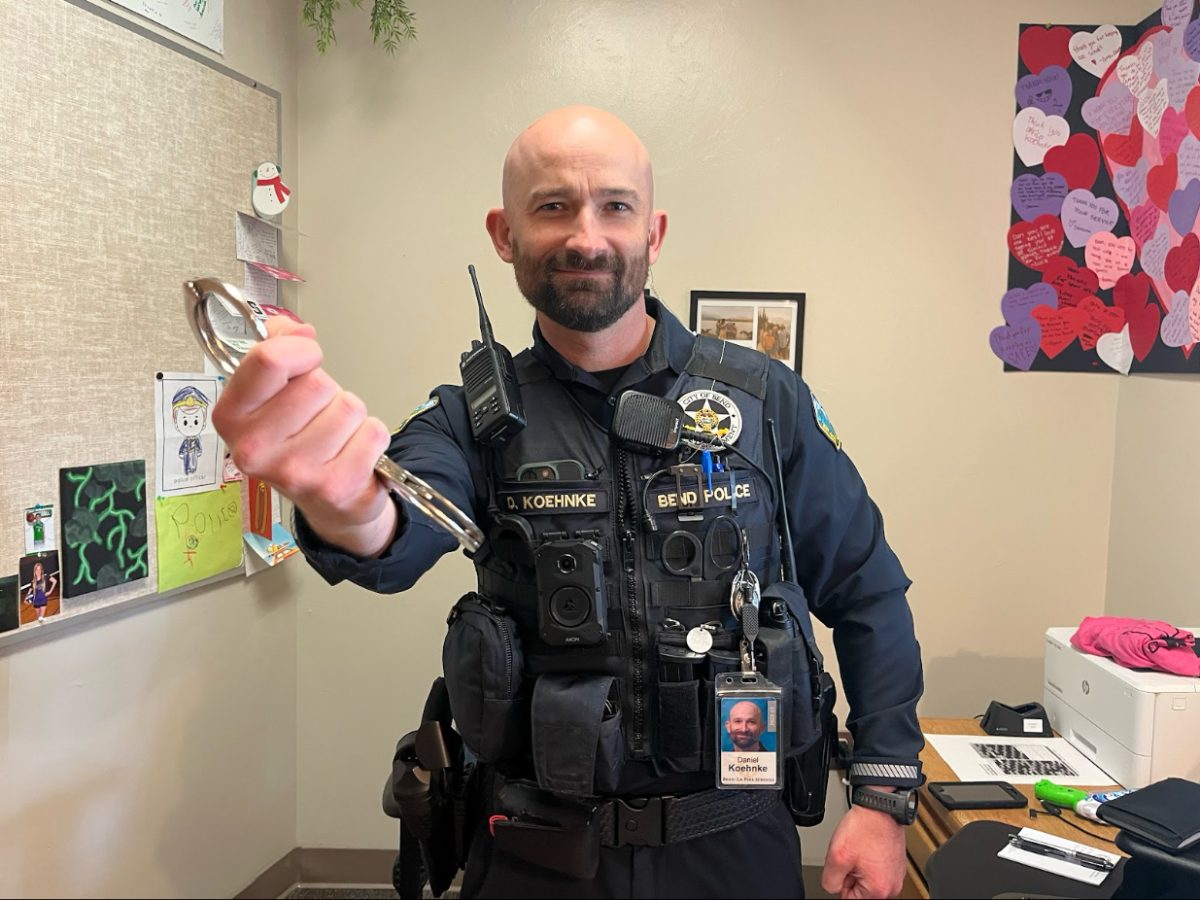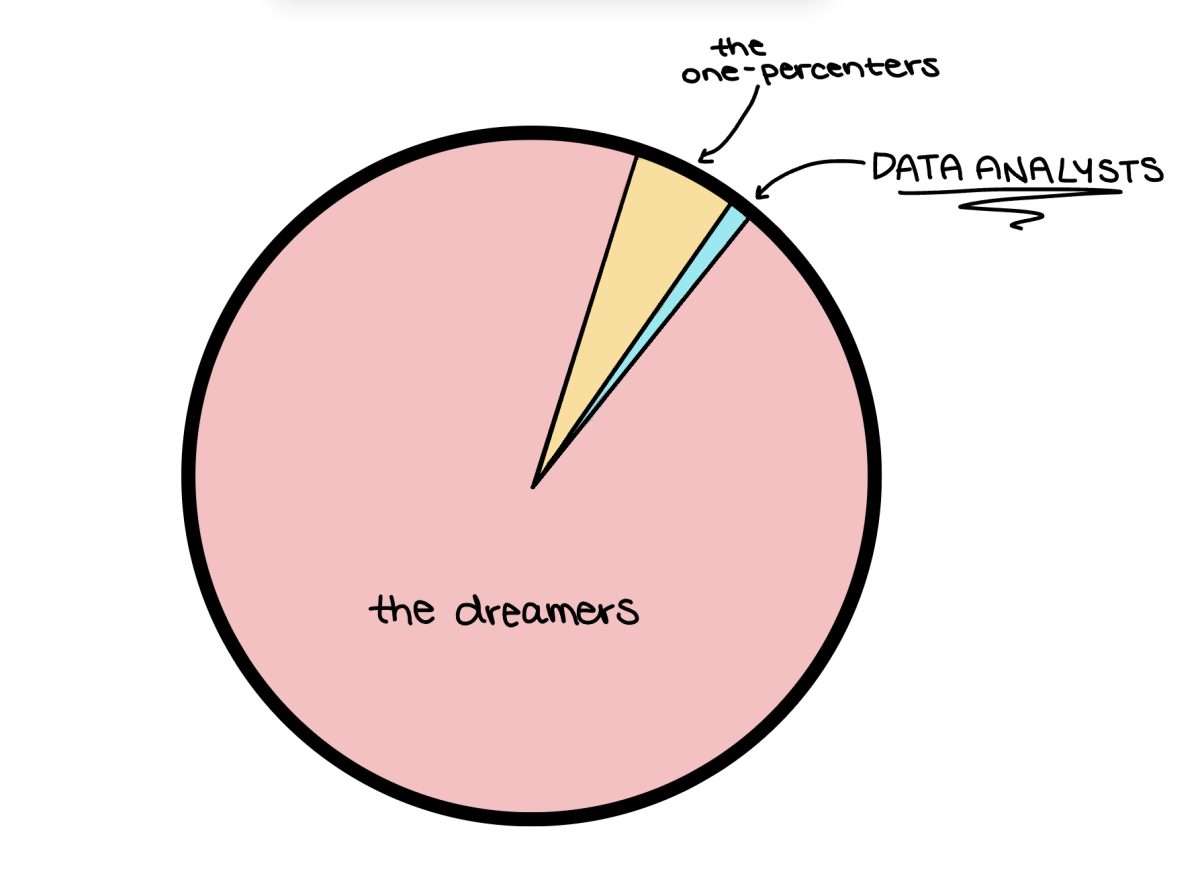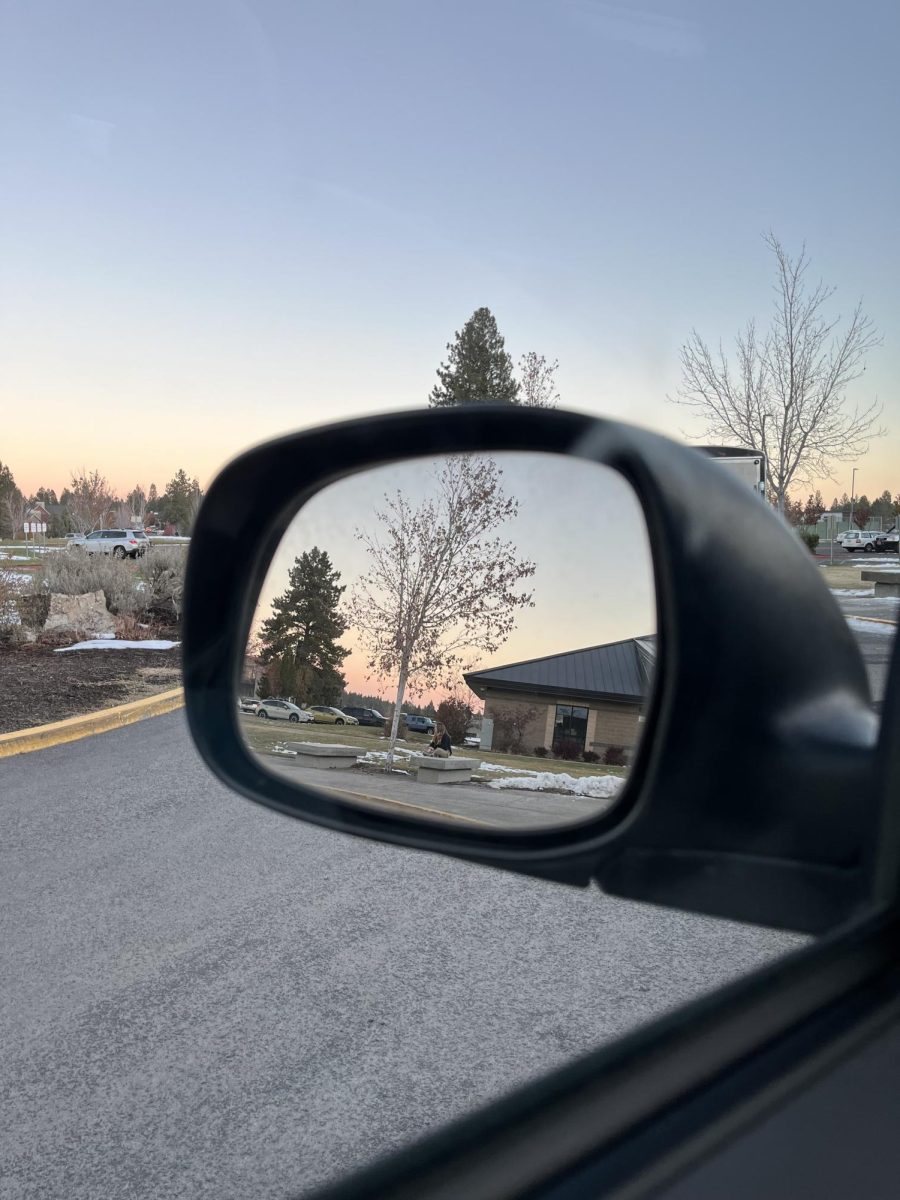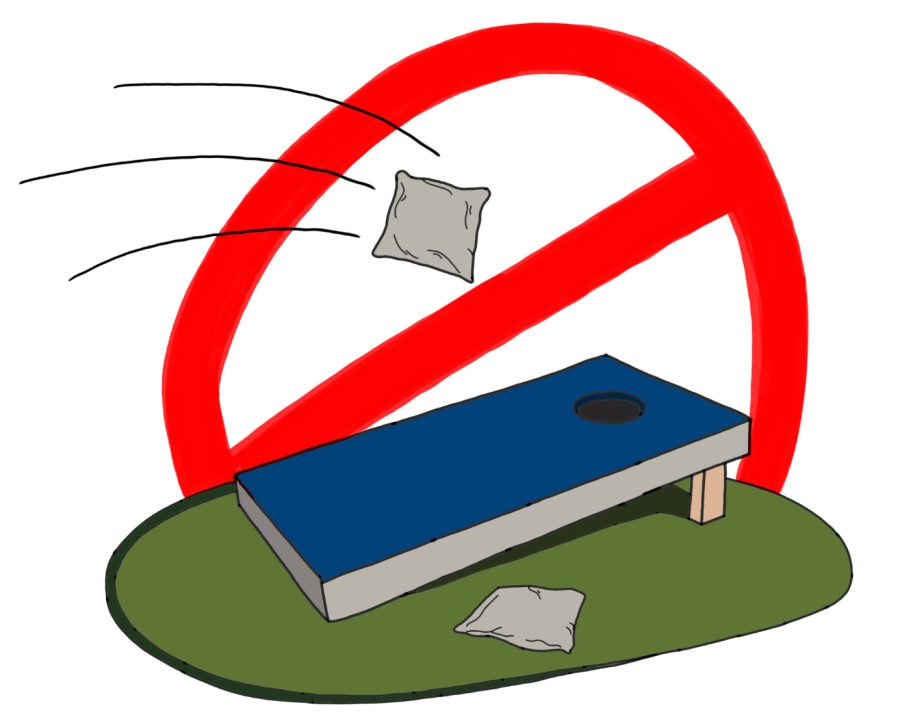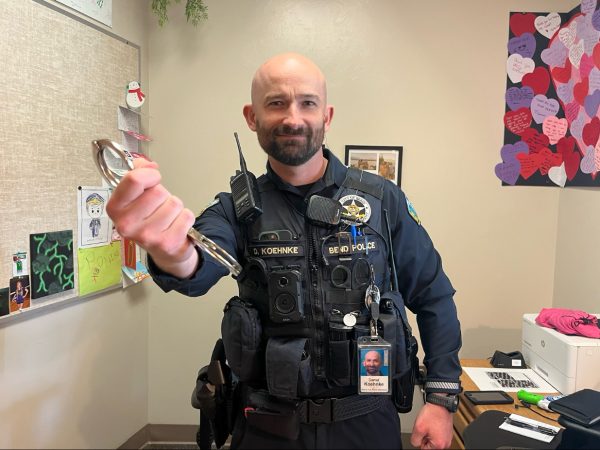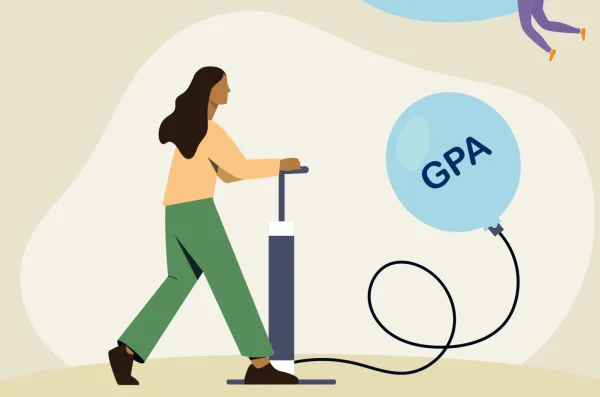Turbulent Teaching
How did people do it without Google?
Pictured: a dull and empty classroom, much like classroom morale.
If I hear one more lecture about my peers and I failing to apply ourselves to our learning, I think I’ll throw back my chair, sweep my notebooks onto the floor, and storm out abruptly (in the most dramatic manner possible, of course).
Several teachers have chided my classes this year for our lack of interest, instinctive apathy, refusal to engage, lazy attitudes—you name it. And don’t worry, while I may be dismissive when it comes to my education, I’m perceptive enough to know that none of them are wrong.
After a particularly long awkward silence, a teacher was quick to call us out for our lack of participation. “This is the part where you talk to each other! Engage with the material! You’re never going to learn anything if you can’t even communicate with your team and formalize these ideas!” Semi-productive conversations began to fill the room, but it was mostly because we’re all scared of her.
Just the other day, one of my teachers was talking about our upcoming final. A student asked if he could put the test on canvas so students could enter a “What If” grade online. “You mean you guys are going to gauge how hard you should study based on how well you need to do on the test?” The response was a unanimous “Yes,” which largely confused my poor teacher. “Why not just give it your best effort regardless?” To this question, however, nobody seemed to have an answer.
Another teacher gave us her late work spiel. She was baffled, saying “There are so many missing assignments that would raise your grade multiple points if you just took 10 minutes to complete them and turn them in!” I found it a little funny that she was trying to motivate a bunch of students that don’t even have enough drive to make sure none of their work is on the No-Name Wall of Shame. Bless her heart.
This obvious lack of motivation from students may be the result of underlying animosity towards education. According to Yale News, “75% of high school students report negative feelings about school. The most common emotions to describe the school experience are stress and boredom.”
But why?
“I feel like [the curriculum] isn’t personally tailored to me. Especially for AP classes, there’s a broad curriculum you have to follow and it doesn’t fit individual student’s needs,” said junior Hayden Gullickson, when asked why he doesn’t feel involved in his learning. There’s so much information being thrown at students, and the curriculum is often extremely generalized so that all these details can be conveyed efficiently.
Many students at Summit High School admitted to struggling with absorbing all the information coming at them on a daily basis. “[Teachers are] just talking at you and it’s just going right over your head,” confessed Ramsey Starr, a junior at Summit. She’s not alone.
Max Himstreet, a Summit High School junior, said, “Some teachers just talk and talk and talk and they expect the students to understand it just because they said it.” An alarming number of teens feel left behind in fast-paced classes due to an inability to ask questions and walk through concepts with their teachers during lessons.
Himstreet elaborated with a personal experience, commenting, “[A teacher of mine] planned all of her lessons to take up the entire period, and so she would do her lecture and tell us we had homework due that night… and if you went home and didn’t understand it, you were screwed.” Ask any teenager about their experience with homework and you will be told a slightly dramatic horror story involving tears, screaming, eye clawing, hair ripping, and possibly some stress eating. I urge you to treat these tales with the utmost seriousness, as catching a high schooler during a homework outburst is genuinely terrifying.
Been there, done that.
The other largely discussed issue is ironically the polar opposite of teachers talking excessively.
“Some teachers don’t actually teach, it’s just like ‘okay, go open your textbook and do this worksheet, go write me this paper.’ When the teacher doesn’t actually speak during class, it’s my biggest pet peeve,” criticized senior Emma Shaughnessy.
There are a couple of my classes that if you asked me beforehand, I could probably list off the 72-minute period’s entire agenda with 96% accuracy. Every. Single. Day. Points for predictability…?
Himstreet said, “Classes that just completely rely on taking notes, where the teacher feels very uninvolved and very unattached… if all I can do is read a textbook and write down notes then I don’t think I’m really engaging at all.” In all fairness, the sheer amount of notes assigned to me COULD be considered reasonable… if I was retaining a good chunk of the information. However, that is not what is being reflected in our class average. At least we’re all in this together.
“Either they talk to us for all of class or they don’t talk to us at all and it’s just… it’s boring,” said Starr. To make school more exciting she mentioned wishing there was “more variation in lessons.”
So how are teachers supposed to balance being helpful and engaging with giving their students creative freedom to work through concepts on their own?
I’m not going to sit here and pretend we make it easy.
Doug McDonald, one of Summit’s history teachers, explained how he “noticed a huge shift in engagement in the last decade since the [Bend-La Pine] district adopted the iPad, and cell phones have become ubiquitous. Ever since then, students’ attention spans are not what they used to be.” ALL of the teachers I spoke with considered phones to be a huge factor in the decline of student engagement.
And while part of me wants to call this another scenario in which cell phones are being used as a blanket statement for other larger issues affecting education engagement levels (admit it, I’m right), I do have to acknowledge that we may have a slight electronics problem.
“Take out your earbuds, put your phone in your bag,” said AP Seminar teacher Elia Overcash, describing how difficult technology can make grabbing the interest of students. Her elaboration is probably my favorite description ever… “I sometimes feel like I need to juggle, tap dance, and perform amazing acts of contortion to keep some students engaged.” Everyone learns (or doesn’t learn) in different ways, making it hard for teachers to find some common ground among everyone.
“You have to bob and weave. Every day can be different,” described Summit’s ceramics teacher, John Kinder. The teachers I talked to all recognized that flexibility is vital in order to meet students where they’re at. Incorporating adaptability into the classroom and lesson plan just might help eliminate the expectation that one method of teaching is supposed to work for all students.
“I think the notion that everyone learns the same is really outdated and we should change that,” stated Gullickson. Yes… but what are the first steps? Since I’m not a total monster, I’ll leave you with a little bit of advice.
“It really helps for teachers to be able to use their expertise and personally engage with students to allow them to better understand the material,” said Himstreet. Going that extra mile, taking a little time to chat with students, double checking that they understand…it really does help. I can’t tell you how many times a two-minute discussion with a teacher after class has sent me home more confident in my understanding (and reassured that I wouldn’t be randomly hit with a homework horrorfest later that night).
Thank you, teachers, for all that you do. I promise we’re trying.
Most of us.

The wild Iben has recently been spotted in the Pinnacle news room. Reports from local journalists describe that the beast has been spending all of her time underwater, listening to music, and watching...















